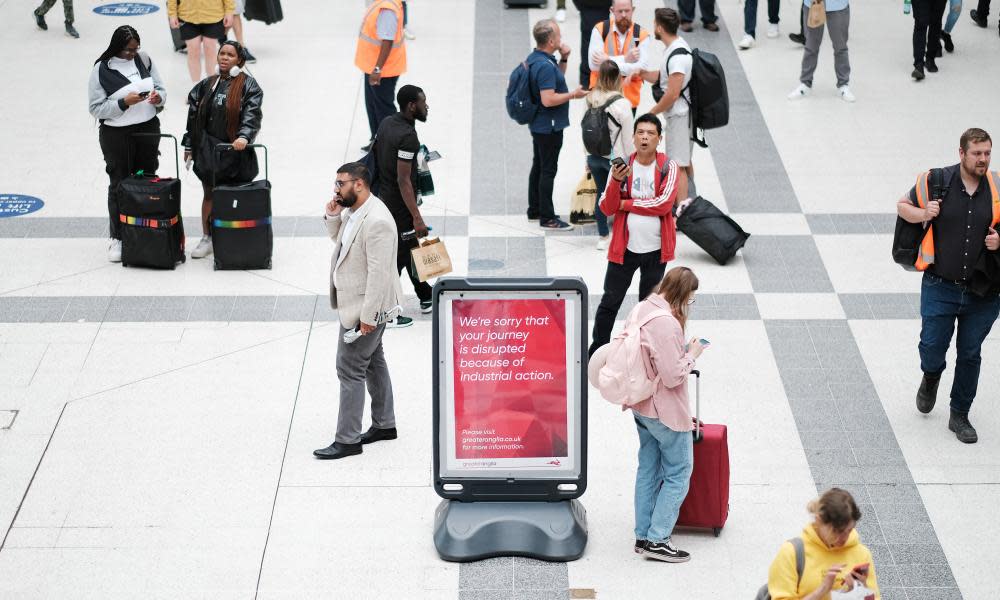England to have almost no trains running on Wednesday as drivers strike

Rail passengers across Britain face more disruption on Wednesday, with no trains at all running on most routes in England as train drivers start the first of two days of strikes this week.
The seventh day of national action in the past year by the Aslef union will affect 14 operating companies, with all but four of them suspending services entirely.
Passengers have been asked to check before attempting to travel, with just a skeleton service on Greater Anglia, LNER and GWR. South Western Railway, where only depot drivers are striking, hopes to run a full service.
Strike action is not being taken at C2C or Merseyrail in England. Scotrail and Transport for Wales have settled pay claims and their services are not affected, although mainline cross-border routes to London will be severely affected or stopped entirely.
A further 24-hour strike by Aslef will be held on Friday.
The train drivers’ union warned that more walkouts could follow, claiming that negotiations to settle the pay dispute have “gone backwards”.
Related: Four problems that Britain’s crisis-hit railway must solve to survive
Simon Weller, assistant general secretary of Aslef, said an initial offer last month by negotiators from the Rail Delivery Group (RDG), of 8% over two years with strings attached, was “designed to fail”.
The union was angered that it was immediately released to the press before it could respond, saying the move “broke all confidence”.
Weller said train drivers were now infuriated by the detail of the offer and were pressing the union to call more action.
A spokesperson for the RDG said the proposed increase would take drivers’ average salaries from £60,000 to nearly £65,000, and urged the union to “engage constructively to move talks forward”.
According to the RDG, strikes since June have cost the industry about £480m in lost ticket revenue, compounding its financial shortfall and problems since Covid.
Hopes of a settlement with other unions have been raised, however, with the RMT still considering improved offers from train operators and in talks over the detail of a Network Rail offer that was rejected in a referendum before Christmas.

A third union, the TSSA, said on Tuesday it had now received two formal offers for all its members at train companies, which it would consider.
The union’s organising director, Luke Chester, said: “There has been progress on a number of fronts – on pay, job security and the future working conditions of many members.”
He said the TSSA would continue to ballot members for an extended strike mandate, after similar moves at the RMT and Aslef, which could mean industrial action continues through the summer.
The strikes on Wednesday come on the TUC’s day of national action, with teachers and civil servants on strike.
The latter include Border Force officials, whose walkout could mean lengthy queues for inbound air passengers, although a first wave of action in December did not unduly disrupt airports.

 Yahoo Movies
Yahoo Movies 
